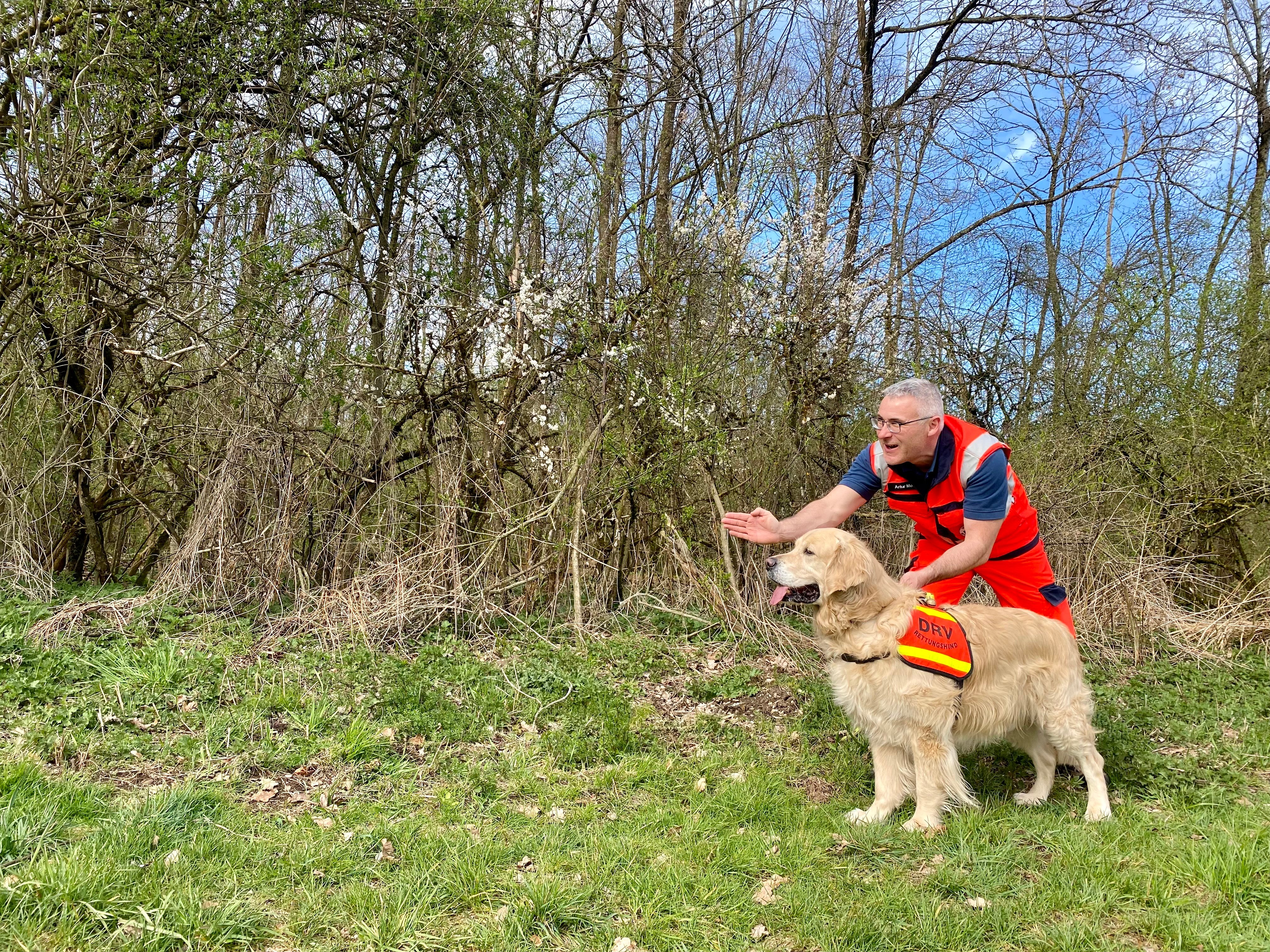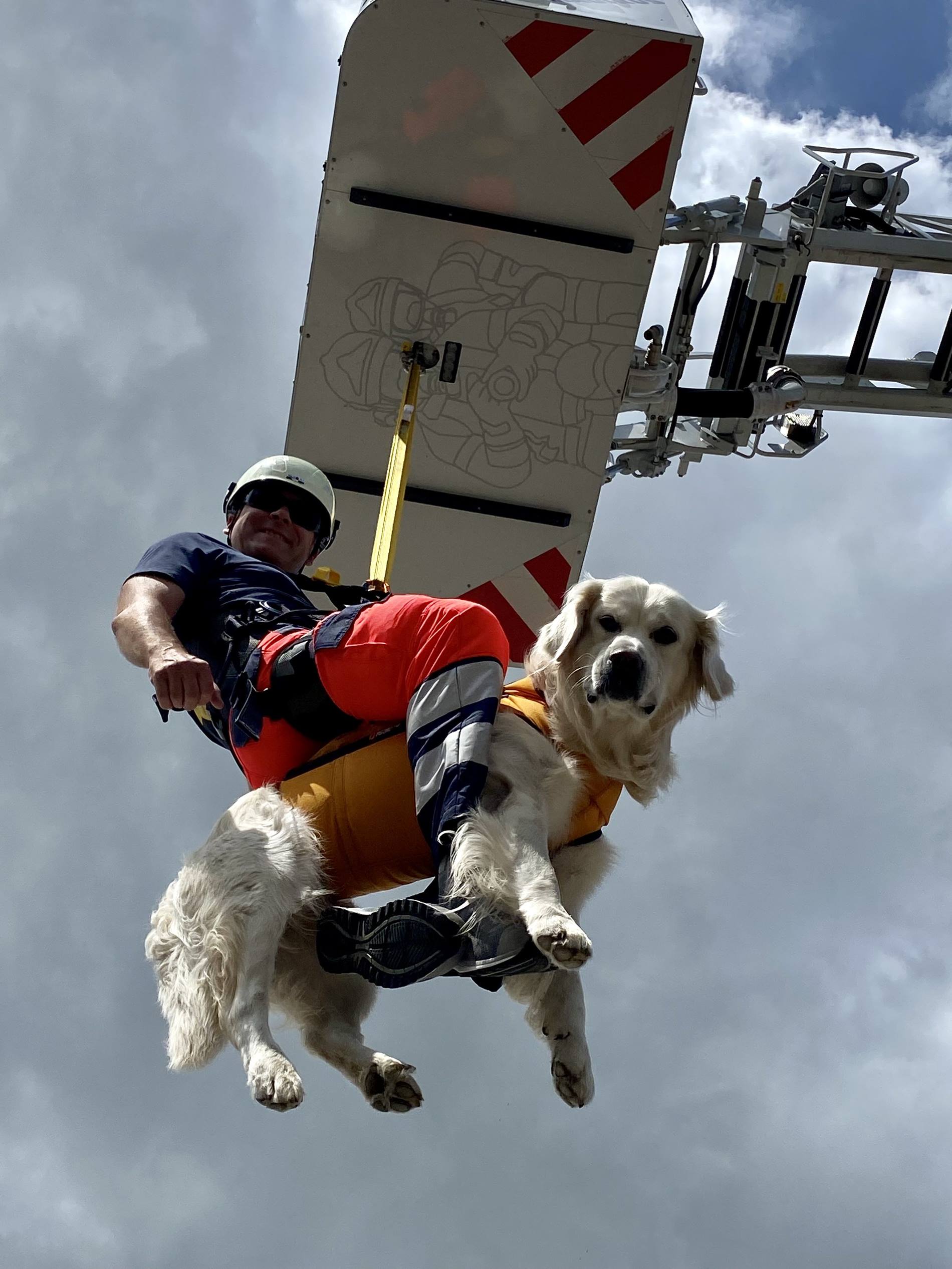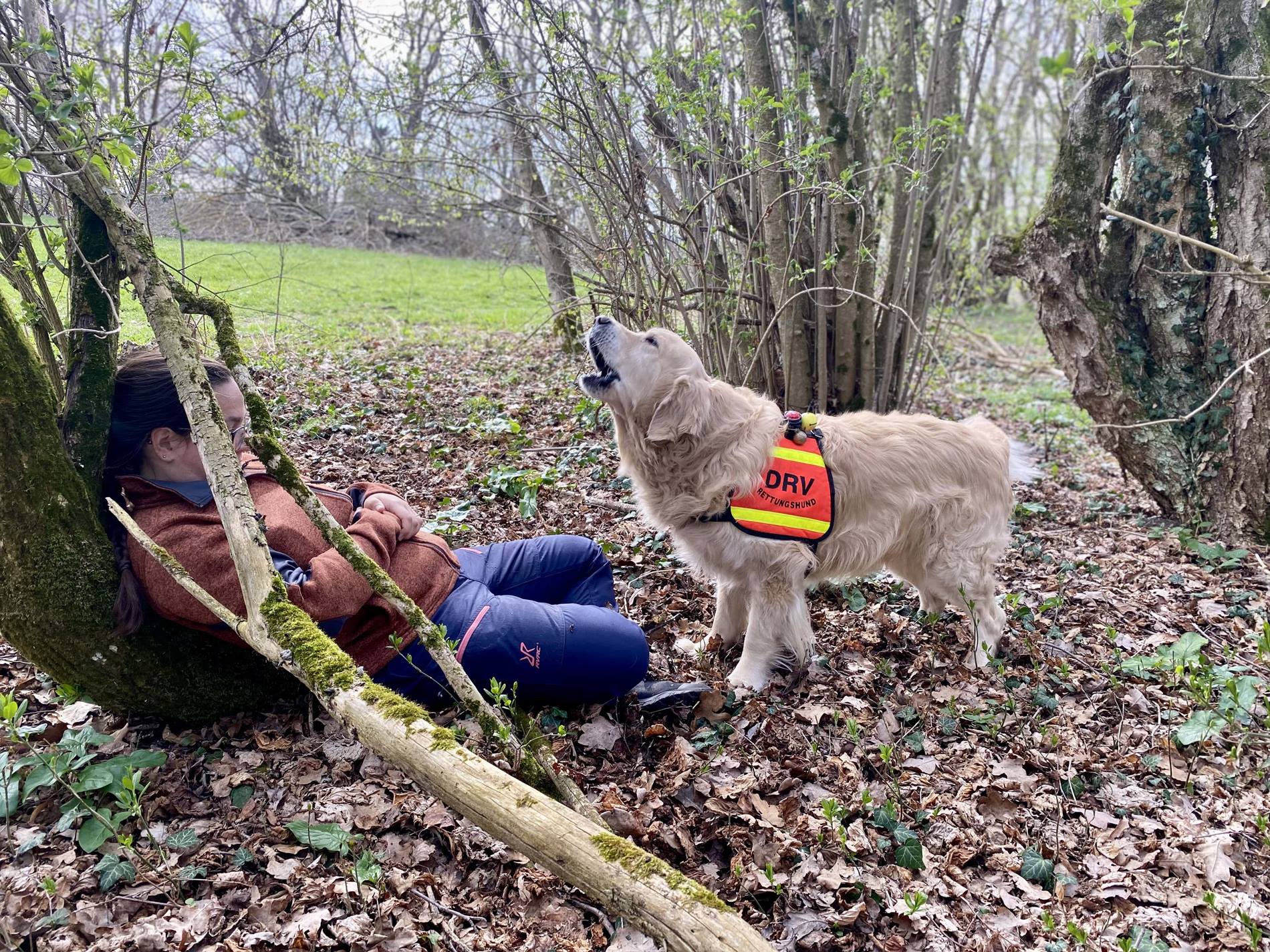Ocatu, Navivio and July - these are the names of the
three four-legged friends that Artur Moser and his wife volunteer with twice a week at the
5-Seen-Land e.V. rescue dog organisation. The
non-profit organisation trains rescue dogs in various disciplines to track down
missing people. The product manager and his golden retriever, Ocatu, specialise in
area searches. This is where a rescue dog searches a large area to locate missing people in
confusing terrain or dense forest.
Rescue dogs in action: helping to find missing people
"We are always used when people are in helpless situations - and that is much more often than you might think," says Artur Moser. "Most of the time, rescue dog work is only covered by the media during major earthquakes and large-scale emergencies.
Artur Moser and his colleagues in the rescue dog squadron are alerted by the police when, for example, residents of care homes or people suffering from dementia cannot find their way home on their own, hikers get lost in the woods or children and young people cannot find their way home. In up to 30 operations a year, the human-dog teams help the police search for missing people at any time of the day or night on a purely voluntary basis.
Training for the rescue dog licence
For Artur Moser, working with the rescue dog team means many hundreds of hours of voluntary work every year. Before he is allowed to go out on missions with Ocatu, they have to pass a number of practical and theoretical tests together. These include searching a 50,000 square metre area in which one to three people are hiding within 30 minutes. In the area search, the dogs work off the leash and use the so-called high wind to detect human scent at a distance of several hundred metres. Once the dog has located the missing person, it will alert its handler by barking continuously.
In total, it takes about two to three years to train a rescue dog. During this time, the dog handlers also complete various basic and advanced training courses. These include the use of maps, compass and GPS, radio, operational tactics, kynology and, last but not least, first aid training. However, the private organisation relies on donations to cover the cost of the mandatory clothing, GPS and radio equipment, as well as training.
A passion for volunteering
For Artur Moser, the many hours of unpaid work are worth it. Not only is it important to him to spend time with his family dog, but also to do something meaningful for society at the same time. In addition to his passion for dogs, the KUKA employee and his Ocatu are focused on one thing: helping people in need.












